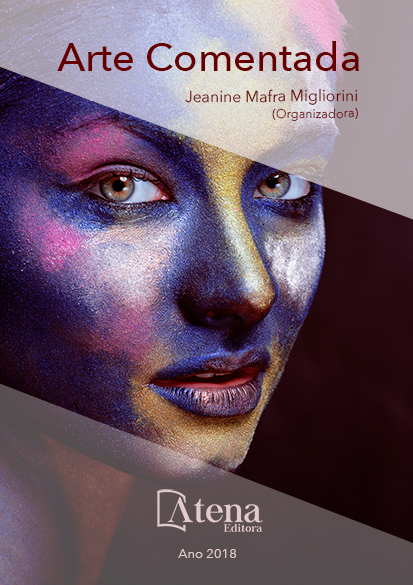
AS ARTISTAS NO INÍCIO DO SÉCULO NO RIO GRANDE DO SUL E A CRÍTICA DE ARTE
Em geral, os periódicos divulgavam
as exposições de arte com textos da crítica, ou
seja, até meados do século XX, não se usava
a fotografia para mostrar as obras e os textos
substituíam as imagens. Neste período, nas
artes e na ciência, a mulher era considerada
mais frágil e de condições inferiores ao homem
para exercer determinadas funções sociais e de
trabalho. A mulher, enquanto artista e indivíduo
foi, por muito tempo, invisibilizada nos registros
históricos e no espaço público. A história da arte
e a crítica de arte não valorizavam as artistas
mulheres, em sua capacidade de produção e
de criação. Este texto traz um estudo da crítica
de arte em Ângelo Guido, sob o enfoque de um
olhar para as artistas mulheres nos anos de
1930 a 1950, no Rio Grande do Sul. A pesquisa
se propõe a avaliar a maneira como o crítico
tratou as artistas mulheres e que distinções
existiam no tratamento aos artistas homens,
com o objetivo de trazer visibilidade e pontuar
novas integrantes para uma cronologia histórica
e artística feminina.
AS ARTISTAS NO INÍCIO DO SÉCULO NO RIO GRANDE DO SUL E A CRÍTICA DE ARTE
-
DOI: 10.22533/at.ed.5751918013
-
Palavras-chave: Atena
-
Keywords: Gender and visuality, art critique, women in art.
-
Abstract:
In general, the journals
disseminated the art exhibitions with texts
of criticism, that is, until the middle of the
twentieth century, did not use the photograph
to show the works and the texts replaced the
images. In this period, in the arts and science,
the woman was considered to be more fragile
and of lesser conditions than man to exercise
certain social and work functions. The woman,
as an artist and an individual, was, for a long
time, invisible in the historical records and in
the public space. Art history and art critique
did not value women’s artists, their capacity for
production and creation. This text brings a study
of art critique in Angelo Guido, under the focus
of a look at women artists in the years 1930
to 1950, in Rio Grande do Sul. The research
proposes to evaluate the way the critic treated
the female artists and what distinctions existed
in the treatment of male artists, aiming to bring
visibility and punctuate new members to a
historical and artistic chronology of women.
-
Número de páginas: 15
- Ursula Rosa da Silva


